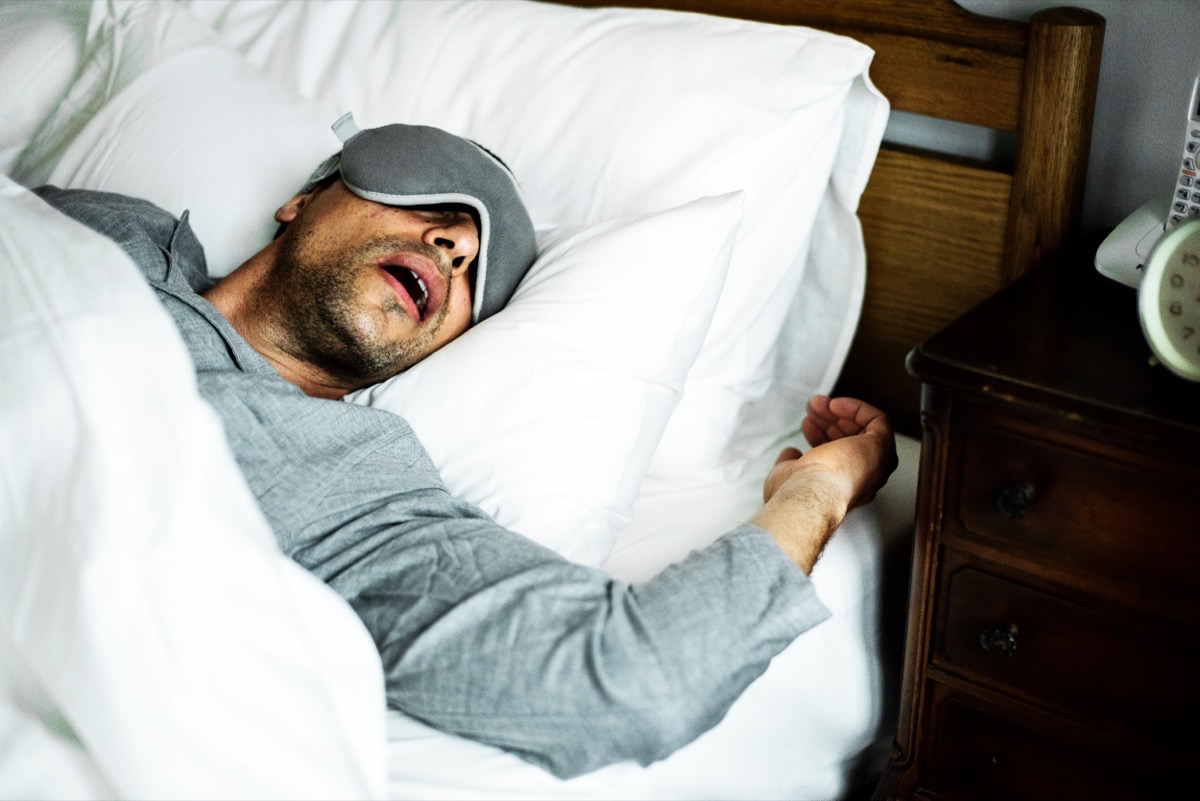The U.S. Ranks Pretty Average for Sleep, But Much Worse for Life Expectancy, New Study Finds

At the end of a long day, it's time to get ready to crawl under the covers and close your eyes for a good night's sleep. But what really makes your sleep sessions "good"? Is it making sure you're logging eight to 10 hours? Maybe it's going a whole night without tossing or turning? Whatever the case may be, sleep does seem to have a profound impact on your overall health—so it's important to get it right.
A recent study done by Zoma Sleep had sleep experts compare the average sleep time of 37 countries to their corresponding Health Grade (determined universally by the Bloomberg Healthiest Country Index) and life expectancy rate (determined by World Bank data) to find any major parallels.
The data revealed that even though Americans get an average of 7 hours and 10 minutes of sleep per night—"the 14th longest of the countries included in the study," the experts note—the U.S. falls on the much lower end of the spectrum for other health factors. Americans are ranked 28th for life expectancy at 78.5 years, and 30th for our Health Grade.
In other words, this data shows that although Americans sleep longer than many other countries, our health is not much better than countries that log fewer Z's. In fact, the study found that, overall, the five healthiest countries had an average sleep time of 6 hours and 53 minutes per night.
Related: One Major Side Effect of Not Sleeping Enough Has on Weight Gain, Say Experts
Notably, Spain had the highest Health Grade and Japan had the highest life expectancy rate. Both countries average around the same sleep time at a little over 7 hours a night (or, more specifically, 7 hours and 16 minutes for Spain and 7 hours and 13 minutes for Japan). True, this is not far off from how long Americans sleep, but clearly, there are other factors at play that are impacting our short- and long-term health beyond getting quality rest.
On the flip side, a good chunk of the countries that have a longer average sleep time appear to have the lowest life expectancy and Health Grade within the study. For instance, the sleep data shows that Mexico has the lowest life expectancy at 74.9 years, and the highest average sleep time at a whopping 9 hours per night.
However, while Mexico is a prime example of a correlation between more sleep per night and less successful health factors, there are exceptions to this finding. With the lowest Health Grade, Argentina citizens average 7 hours of sleep per night—which is not far off from Spain's slumber, which has the highest Health Grade.
The major similarities and differences indicate that while the study shows a wide variety of countries' sleep times and rates of health status, there can be dozens of factors when it comes to whether sleep has any consistent impact on your long-term health. Plus, despite how important sleep is, it's also individually tailored to the needs of you and your own body. For these reasons, the researchers conclude that "people wondering about how to get better sleep should consider the quality of the sleep as much as the quantity."
For more, check out This Is the Best Workout for Better Sleep, New Study Finds.








